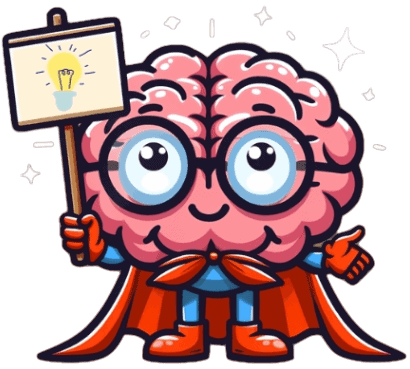
The Downside of Delay: Understanding Procrastination
Procrastination, the habit of delaying tasks, especially assignments, is a common issue many people face. While it might seem harmless, procrastinating on assignments can lead to a variety of negative consequences. This section delves into the psychological aspects of procrastination, why people tend to procrastinate, and the immediate gratification it falsely promises.
The Psychology Behind Procrastination
Many times, procrastination is not about laziness but about avoiding discomfort. Assignments can be challenging, and the fear of not doing well can lead individuals to delay starting them. This behavior is often a coping mechanism to deal with anxiety or a lack of confidence.
The Lure of Immediate Gratification
Procrastination is also linked to seeking immediate pleasure. The idea of doing something enjoyable now and pushing the less enjoyable task of completing an assignment to later is a classic example of choosing instant gratification over long-term benefits.
Why We Choose to Delay
Understanding the reasons behind procrastination is crucial. It’s often a mix of fear, lack of motivation, and a misunderstanding of how time works. Recognizing these factors can help in addressing procrastination effectively.
The Impact on Academic Performance
Delaying assignments can significantly affect academic performance. This section will explore how procrastination leads to rushed work, lower quality of assignments, and ultimately, poor grades.
Rushed Work and Its Drawbacks
Procrastinating often means having to complete assignments in a hurried manner. This rush can lead to mistakes, superficial understanding, and a lack of depth in the work submitted.
Quality Suffers
When assignments are done last minute, the quality inevitably suffers. The lack of time for research, reflection, and revision leads to subpar work that doesn’t reflect the student’s true potential.
The Domino Effect on Grades
Poorly done assignments affect grades. Consistently procrastinating can lead to a pattern of poor performance, affecting overall academic success.
Health Implications of Procrastination
Procrastinating on assignments can also have health implications. This section discusses the stress and anxiety it causes, the impact on sleep patterns, and the potential for burnout.
Stress and Anxiety
The pressure of completing an assignment at the last minute can cause significant stress and anxiety. This can have a detrimental effect on mental health.
Disrupted Sleep Patterns
Procrastination often leads to late nights trying to complete assignments, resulting in disrupted sleep patterns and poor sleep quality.
The Road to Burnout
Constantly working under pressure and stress can lead to burnout, a state of emotional, physical, and mental exhaustion caused by prolonged stress.
Time Management: The Key to Avoiding Procrastination
Effective time management is essential in overcoming procrastination. This section offers tips on how to manage time better, set realistic goals, and create a workable schedule.
Setting Realistic Goals
Breaking down assignments into smaller, manageable goals can make the task seem less daunting and more achievable, reducing the urge to procrastinate.
Creating a Workable Schedule
Planning and sticking to a schedule can help ensure that assignments are worked on consistently, rather than left until the last moment.
The Importance of Prioritization
Understanding the importance of the assignment and prioritizing it accordingly is crucial in managing time effectively and avoiding procrastination.
The Role of Environment in Procrastination
The environment plays a significant role in procrastination. This section highlights how a conducive environment can reduce the likelihood of procrastination, the importance of a distraction-free space, and the role of technology.
Creating a Conducive Environment
Having a dedicated, comfortable, and well-organized space for studying can encourage focus and reduce the temptation to procrastinate.
Minimizing Distractions
Identifying and minimizing distractions, such as social media, television, or noisy environments, can help maintain focus on the assignment.
Technology: A Double-Edged Sword
While technology can be a distraction, it can also be a tool for managing time effectively, with various apps and software available to help stay on track.
The Psychological Benefits of Completing Assignments On Time
Completing assignments on time has several psychological benefits. This section covers the sense of accomplishment, the reduction in stress, and the positive impact on self-esteem.
Sense of Accomplishment
Completing an assignment on time provides a sense of accomplishment, boosting confidence and motivation.
Reduced Stress Levels
Avoiding the last-minute rush reduces stress and anxiety, leading to a healthier mental state.
Boosting Self-Esteem
Consistently completing assignments on time can have a positive impact on self-esteem, as it reinforces the belief in one’s abilities.
Long-Term Effects of Avoiding Procrastination
The long-term benefits of avoiding procrastination go beyond academic performance. This section discusses the development of positive habits, improved time management skills, and the positive impact on future career prospects.
Developing Positive Habits
Avoiding procrastination helps in developing positive habits like discipline and responsibility, which are valuable in all areas of life.
Improved Time Management Skills
Regularly completing assignments on time helps develop effective time management skills, a valuable asset in both academic and professional settings.
Impact on Future Career Prospects
The habits and skills developed by avoiding procrastination can positively impact future career prospects, as these are qualities highly valued in the professional world.
Alternatives to Procrastination: Productive Ways to Spend Time
Instead of procrastinating, there are more productive ways to spend time. This section suggests alternatives like engaging in a hobby, exercise, or learning a new skill.
Engaging in a Hobby
Taking up a hobby can be a more productive way to take a break, providing relaxation without the guilt of procrastination.
Exercise: A Healthy Break
Exercise is not only good for physical health but also for mental well-being, offering a productive break from assignments.
Learning a New Skill
Using free time to learn a new skill can be both enjoyable and beneficial, providing a sense of accomplishment and potentially valuable skills.
Things Worth Considering
Before concluding, it’s important to consider some key points. Reflect on the reasons for procrastination, recognize its impact on various aspects of life, and consider the benefits of overcoming this habit. It’s not just about academic success; it’s about developing a healthy approach to work and life challenges.
Understanding Your Reasons
Understanding why you procrastinate is the first step towards overcoming it. Reflect on what holds you back and work on those areas.
Recognizing the Impact
Recognize how procrastination affects not just your grades but your health, sleep, and stress levels. This realization can be a powerful motivator.
Embracing the Benefits
Embrace the benefits of not procrastinating – less stress, better performance, and a sense of achievement. This positive reinforcement can help build a healthier approach to assignments and tasks.






Leave a Reply